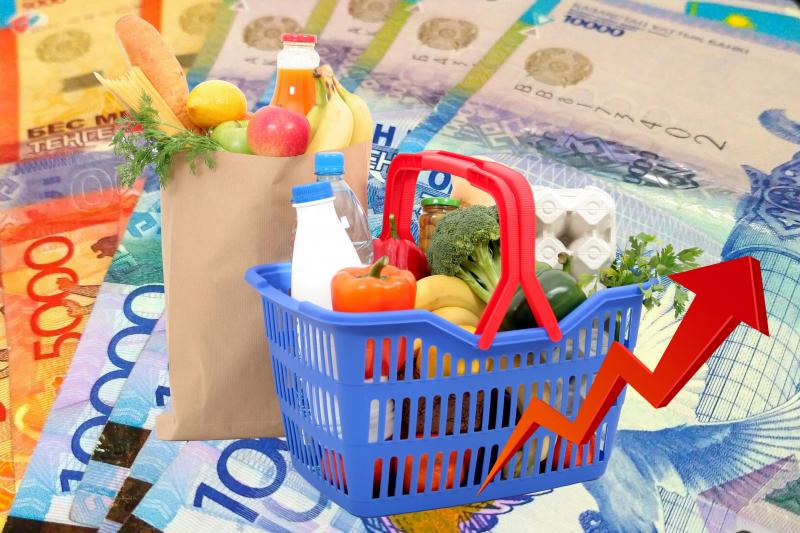
At the meeting of the Government held recently, the Minister of Trade and Integration Bakhyt Sultanov stated that the prices for socially important food products in the country have increased by 4.8% since the beginning of the year. According to monitoring agency Energyprom.kz, by the results of April of this year, food products in annual dynamics rose by 9.8%.
The price issue is always of acute concern to consumers. But it is not clear to everyone what is the reason behind the continuous growth in the cost of commodities. World of NAN tried to find answers to this pressing problem and determine the factors that provoke a spike in prices.
Fuels and lubricants
The price of any commodity is made up of many components, such as demand, supply, profit and others. However, the decisive factor is the money spent on the production of the commodity, one of which, in the agrarian sector, is fuel and lubricants.
According to Chairman of the Union of Potato and Vegetable Growers of Kazakhstan Kairat Bisetayev, diesel fuel accounts for 20% of all costs of agrarians. And the cost of it is constantly rising, especially during the sowing and harvesting. And the price is not regulated by antimonopoly committee. This problem, according to the speaker, could be solved if the committee takes an interest in regulating the price of diesel fuel.
"If we want fairer food prices, we need other support measures. We need to subsidize fuel and lubricants for farmers or create favorable conditions for fuel producers. Perhaps then the people of Kazakhstan will get food at a fair price," the chairman of the union shared his thoughts.
Executive Director of the Union of Farmers of Kazakhstan Akpar Maulenov agrees with K.Bisetayev that the pricing policy is always affected by the growth of production costs, which consists of the cost of equipment, spare parts, fertilizers, pesticides, and including fuel. According to A.Maulenov, cheaper fuel provided to agrarians will not help to keep food prices down either. Because its volume almost doesn't play a major role in farming.
Farmers receive subsidized fuel at 165 tenge, which is 20 tenge cheaper than on the market. However, this difference, according to our interlocutor, gets "eaten up" by the transportation of fuel. In addition, not all farmers qualify for the cheaper fuel, it is provided depending on the area of land. Thus, large farms receive a larger volume of fuel and lubricants, while small ones are either not given anything at all or their meager volume does not help save farmers' money.
The Farmers' Union also attributes the current spike in prices for fuel and lubricants in the spring period to the scheduled work at the oil refinery which takes place every year during the season of spring field work.
"For some reason, repair work at oil refineries takes place precisely during the spring or fall field work season. Because of this, prices for fuel and lubricants skyrocket every year in the midst of the sowing or harvesting season. We must regulate this issue at the governmental level and refuse to provide fuel and lubricants at a discount. Instead, in our opinion, we should consider subsidizing the cost of fuel and lubricants depending on the amount of fuel used in agricultural work", - said the Executive Director of the Union.
Exchange rate
The impetus for the price increases is also the devaluation as a component of the economy. If Kazakh farmers pay for labor and water with domestic currency, but fertilizers, seeds and special equipment are always bought from abroad. Naturally, in foreign currency. Tenge in recent years is showing steady fall, which greatly affects the pricing of agricultural products in Kazakhstan.
Chairman of the Board of the Union of Potato and Vegetable Growers calls devaluation one of the reasons for the rise in prices of agricultural goods.
"Here's a simple example, almost 80% of seeds we buy mostly in Europe. Now take last year's euro price and the current price. The difference is substantial. Plus the machinery that farmers use when irrigating vegetables. It is also purchased abroad," says K.Bisetayev.
"Prices are rising across the board. For example, machinery has risen by 20%, fertilizers and pesticides by up to 50%. This in turn leads to an increase in the cost of production. As a consequence, prices go up. On the world market there is also a jump in prices. Wheat and sunflower rose in price. This, in turn, provoked the rise in price of sunflower oil, pasta. The rise in feed prices was reflected in the price of meat", - adds his colleague A.Maulenov, who also talks about the influence of the currency exchange rate on the overall picture.
Indeed, the average euro exchange rate last May was 461 tenge, but now the euro is worth 519 tenge. The growth amounted to almost 13%. It turns out that the Kazakh farmers, most of whom earn their profits in tenge, had to spend 13% more this year. And nobody knows what will be the rate next year. Where will an ordinary farmer find that extra 13%? Most likely by raising the price of their products. Therefore, the devaluation has a significant impact on the pricing of agricultural products today. The utilization fee
Another factor K.Bisetayev refers to the introduction of the utilization fee. According to the chairman of the Union, it seriously impacted the budget of farmers.
To recall, the utilization fee on imported agricultural machinery was introduced in December 2019, both for manufacturers of self-propelled agricultural machinery of the Republic of Kazakhstan and importers from the EAEU member states and third countries. Thus, any imported agricultural machinery became subject to an additional tax.
Last year at the plenary session of the Mazhilis of the Parliament deputy Murat Temirzhanov announced the maximum rate of duty on tractors, it was 11 mln tenge per unit, and on combines - 12,5 mln tenge. This amount is added to the cost of the tractor, which is already rising in price because of the devaluation. These extra charges, which are beyond the means of any small farmer, are literally forcing Kazakh farmers to raise the price of their product.
The deficit of forage.
According to the experts' opinion, prices, especially for agricultural products, are also increasing because of the lack of fodder. The problem, by the way, is not new for Kazakhstan market. Sometimes the lack of fodder is even linked to gross production deficit in cattle breeding.
Several years ago, the Ministry of Agriculture developed a fodder balance by regions. For each of them, the volume of fodder provision was determined, taking into account the minimum ration and the loss of production volumes. It was planned to reduce the deficit by 2021. But so far there has been no significant progress.
In February, the farmers of many regions of Kazakhstan experienced real distress. Cattle breeders of WKR turned out to be in a particularly difficult situation. In summer the drought prevented them from storing fodder. And in winter, local cattle breeders had nothing to feed their cattle. Then officials admitted that the problem exists in the region. And they confirmed that, where grass used to grow well, now there is practically nothing growing. Specialists believe that the reason for the poor yield of hayfields is that they have exceeded their useful life. And this is the case all over the country. Among other problems is the lack of seeds of fodder crops.
Logistics and storage
The problems of storage and sale of agricultural products are also important, they directly affect the level of AIC competitiveness and pricing in the country.
Analyst Nailya Almukhamedova openly speaks about underdevelopment of trade and logistics system in Kazakhstan.
"In Kazakhstan, a countless number of facilities for the pre-sale preparation of goods (washing, packing, drying, calibration and transportation, etc.) does not ensure an even supply of quality raw materials throughout the year. Thus, certain regions of the country do not yet have warehouses for storage of fruits and vegetables and food products in accordance with standards. The existing capacities of wholesale and distribution centers are not sufficient to eliminate the problems, because with the growth of the average annual yield of grain and oilseed crops is increasing the lack of storage capacity," says the expert.
According to her, despite the growth in the number of retail facilities, the delivery of food to remote areas of Kazakhstan is complicated by the deterioration of roads of regional and district level, the lack of development of the railway network for cargo transportation between the regions.
Industry experts assure that the problem of product storage is acute. The country does not have enough modern warehouses with convenient transport interchanges. Most often improper storage of foodstuffs, for example, fruits and vegetables, which have the highest rise in price, causes losses. Losses can be up to 30%, and an ordinary buyer ends up having to pay for them.
Therefore, the creation of own supply chains is more important now than ever, if we do not want to feel the constant rise in prices, the expert said. To do this you must stop perceiving warehouses as places to store goods, it must be regarded as an infrastructure object, providing a quick and efficient movement of material resources, to create conditions for business to be based on good logistics.
"Grey market".
According to the Chairman of the Union, the so-called "gray market" also has a significant impact on the rise in food prices.
"We sell a lot of agricultural products through bazaars or intermediaries, which do not work transparently. I will give you an example of potatoes, we work quite transparently, but our potatoes are bought by entrepreneurs who work with bazaars, where potatoes go through several traders. At the same time, the majority of the retailers we have also buy products at the bazaar, so they give their markup. It turns out that we sell our potatoes at one price, and in large supermarkets we see prices 2 or 2.5 times higher," says our interlocutor.
Indeed, today bazaars in Kazakhstan occupy a high share of the market. According to K. Bisetayev, they should cover no more than 20 percent of sales, and then their impact on price growth will be minimal. And when 90% of products go through bazaars, as they do now, the price inevitably changes.
To solve this problem, the Ministry of Trade needs to build a transparent commodity distribution system. When the issue of transparency is solved, then there will be no bazaars and all products will be sold through organized networks, said the chairman of the Union.
What to expect?
According to the executive director of the Farmers' Union, at the moment, in the off-season, the rise in prices of fruits and vegetables is inevitable. Local vegetables will not appear on the shelves soon, so we will have to be content with expensive ones imported from neighboring countries and not wait for a sharp drop in prices yet.
In the course of the conversation, A. Maulenov touched upon another problem, which is felt by consumers every season. It is the high cost of Kazakhstani products compared to the same Uzbek products.
"A simple average citizen often does not think about the cost of production, which we talked about above. Many people think that the state subsidizes farmers, supports them, and they overprice. But the cost of Uzbek vegetables is much cheaper than ours, Kazakhstani vegetables. The costs of neighboring agrarians for electricity and gas are much lower. Because of favorable weather conditions, they can perfectly grow vegetables both on farmland and in greenhouses. Domestic entrepreneurs, on the other hand, have to spend a huge amount of electricity to run a greenhouse business and pay a lot of money on tariffs," Akpar Maulenov explains the situation.
At the same time, according to a representative of the Farmers' Union, there's no need to artificially restrain prices. The worldwide trend of rising prices should simply be accepted as part of the economy. And to prevent the price increase from being acutely felt on the budget of the general population, the government should raise pensions, salaries, and allowances for socially vulnerable segments of the population to support the people of Kazakhstan, A. Maulenov believes.
The other day, the analytical portal Energyprom.kz published a new report on the growth of food prices. In 9 out of 17 regions of the country the price growth was higher than the average national level. As of the end of April of this year, experts have recorded a rise in food prices in the annual dynamics of 9.8%. Only for a month, according to the portal, the growth was 1%.






































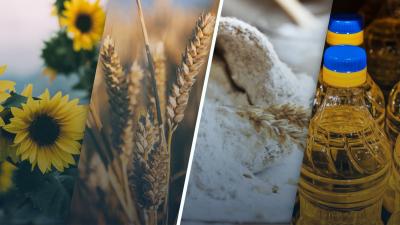

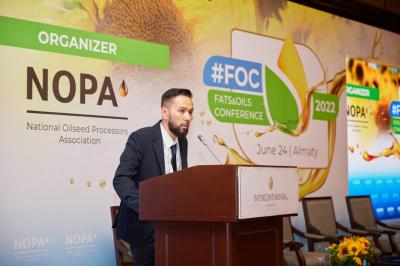
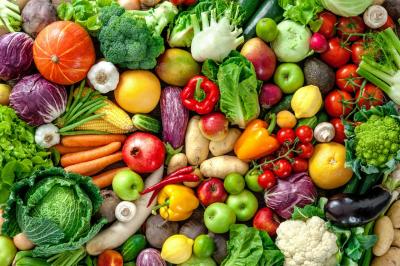
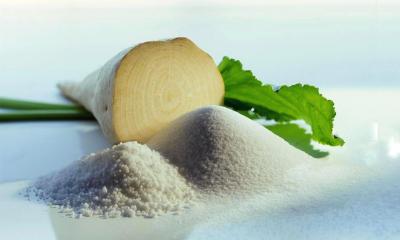

Обсуждение